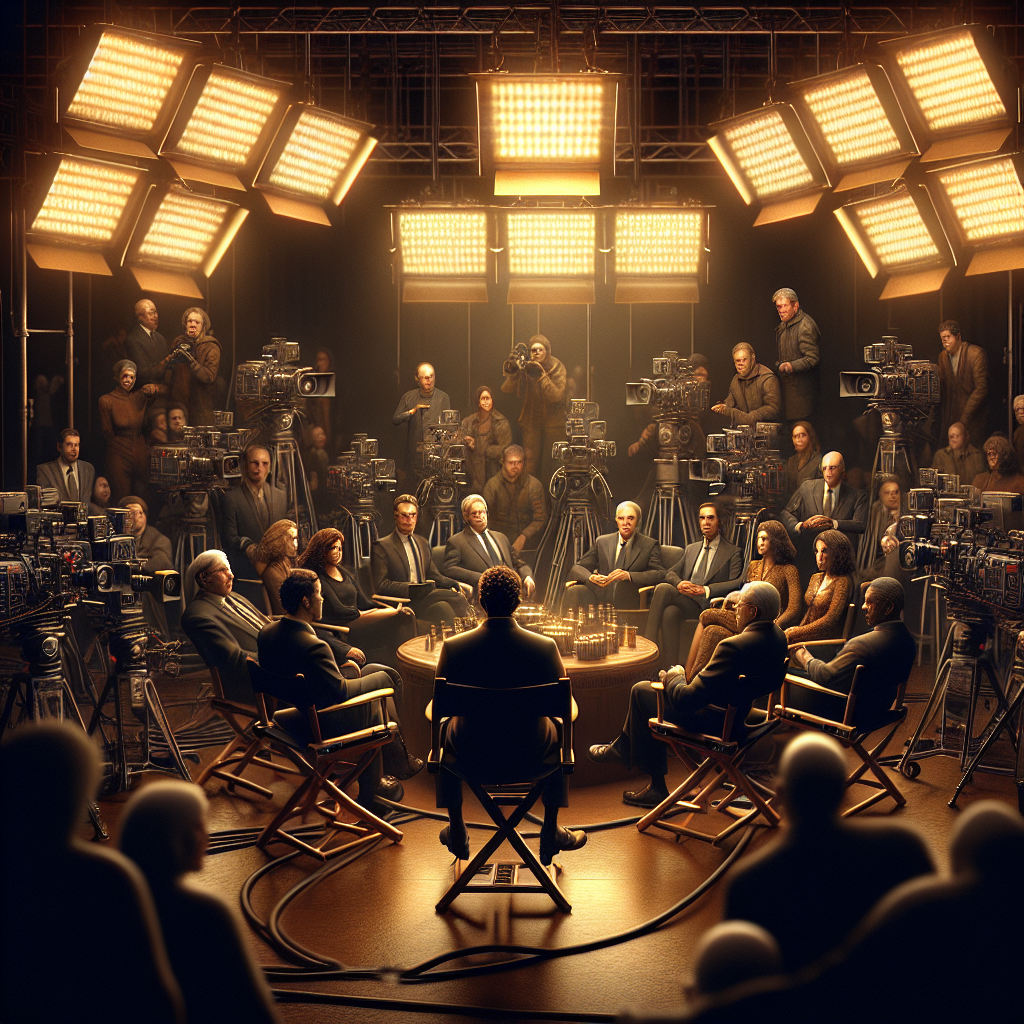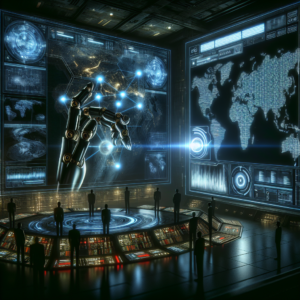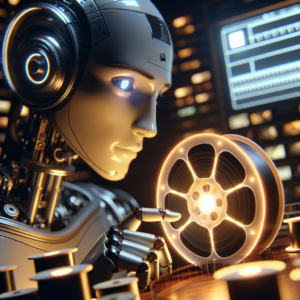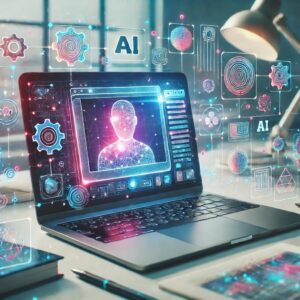Trump’s AI Action Plan Gets Big Warning From Hollywood A-Listers
In recent news, the entertainment industry is weighing in on former President Donald Trump’s ambitious AI action plan, expressing significant concerns about its implications. As artificial intelligence continues to reshape various sectors, the Hollywood elite is sounding the alarm over potential threats to creativity, employment, and ethical considerations within the industry. This blog post delves into the responses from Hollywood A-listers, the content of Trump’s plan, and the broader implications of AI in the creative realm.
The Overview of Trump’s AI Action Plan
Former President Trump unveiled his AI action plan during a recent announcement aimed at positioning the United States as a global leader in artificial intelligence development. The plan emphasizes innovation, research funding, and the establishment of regulatory frameworks to oversee the safe deployment of AI technologies.
Key components of the plan include:
1. Investment in AI Research: Allocating federal funds to support AI research initiatives at universities and tech companies across the nation.
2. Regulatory Frameworks: Establishing guidelines for ethical AI practices to prevent misuse and ensure accountability among developers.
3. Workforce Development: Implementing training programs to equip workers with the necessary skills to thrive in an AI-driven economy.
4. International Collaboration: Promoting partnerships with allied nations to advance AI technology while addressing global challenges.
While these initiatives might sound promising, many in Hollywood are questioning the potential ramifications of such policies on the creative industry.
Hollywood’s Concerns: A Response to the AI Action Plan
Prominent figures from the film and television industry have voiced their apprehensions about Trump’s AI initiative. The concerns largely revolve around the following aspects:
1. Threat to Creative Jobs
One of the most pressing worries articulated by Hollywood A-listers is the potential displacement of creative jobs. With advancements in AI technology, there is a fear that machines could eventually take over roles traditionally filled by writers, directors, and artists. For example, AI algorithms are already being utilized to generate scripts, compose music, and even create visual art. This raises an unsettling question: can a machine truly replicate the human experience and emotion that drives creative expression?
2. Ethical Dilemmas
Hollywood figures are also raising alarms about the ethical implications of AI in the creative process. The authenticity of creative work is a fundamental pillar of the arts, and the integration of AI could lead to a dilution of genuine human creativity. Issues regarding copyright, ownership, and the integrity of artwork created by AI are becoming increasingly relevant. Will artists lose their rights to their creations if AI evolves to produce similar or identical works?
3. Cultural Homogeneity
Another significant concern is the risk of cultural homogeneity that may arise from an over-reliance on AI-generated content. If algorithms dominate content creation, there is a danger that stories could become formulaic, lacking the diversity and nuance that arise from individual human experiences. The uniqueness of storytelling, which draws upon personal and cultural contexts, could be threatened by AI’s data-driven approach.
4. The Role of Authenticity
The importance of authenticity in the creative process cannot be overstated. Many artists believe that the soul of art lies in its human connection. As AI continues to advance, there is a growing fear that audiences may become desensitized to work that lacks the authenticity derived from human experience. The emotional resonance of art is rooted in the artist’s journey, and the rise of AI-generated content could lead to a disconnect between creators and their audiences.
Reactions from Hollywood A-Listers
In light of these concerns, several notable figures from the entertainment industry have taken to social media and public forums to express their thoughts on Trump’s AI action plan.
1. Meryl Streep
The Academy Award-winning actress has been a vocal advocate for artists’ rights and the protection of creative professions. Streep expressed her worries about AI’s potential to undermine the human touch in storytelling, stating, “Art is born from the human experience, and we must protect that essence from being diluted by machines.”
2. Ava DuVernay
Director Ava DuVernay echoed similar sentiments, emphasizing the importance of diverse voices in filmmaking. She cautioned against the dangers of allowing AI to dictate the narratives that shape culture, arguing that “stories are best told through the lens of lived experiences, not algorithms.”
3. Jordan Peele
Filmmaker and actor Jordan Peele has also joined the conversation, noting that while technology can enhance storytelling, it should not replace the creative process. “AI can be a tool, but we must remain vigilant in ensuring that it does not diminish the human aspect of art,” Peele remarked during a recent interview.
The Path Forward: Balancing Innovation and Creativity
As the debate surrounding Trump’s AI action plan continues, it is essential to consider how to strike a balance between technological advancement and the preservation of creativity. Here are some potential pathways forward:
1. Collaborative Approaches
Encouraging collaboration between technologists and creatives could pave the way for innovative solutions that harness the strengths of both fields. By fostering a dialogue between AI developers and artists, stakeholders can explore ways to integrate AI tools while preserving the integrity of creative expression.
2. Ethical Guidelines
The establishment of clear ethical guidelines will be crucial in navigating the intersection of AI and creativity. Policymakers and industry leaders should work together to develop frameworks that protect artists’ rights and ensure accountability in AI-generated content.
3. Education and Training
Investing in education and training programs that equip artists with the skills to work alongside AI technologies can empower creatives to adapt to the evolving landscape. Emphasizing the importance of human creativity in the age of AI will help safeguard artistic integrity.
Conclusion: The Future of AI in Hollywood
As the implications of Trump’s AI action plan unfold, the entertainment industry must remain proactive in addressing the challenges posed by artificial intelligence. While AI has the potential to enhance efficiency and open new avenues for creativity, it is crucial to prioritize the human element that lies at the heart of artistic expression. By fostering collaboration, establishing ethical guidelines, and investing in education, Hollywood can navigate the complexities of the AI landscape while ensuring that creativity remains a distinctly human endeavor.
The road ahead will require dialogue, adaptation, and a commitment to preserving the essence of what makes art meaningful. As we embrace the future of AI, let us not lose sight of the stories that connect us as human beings.



